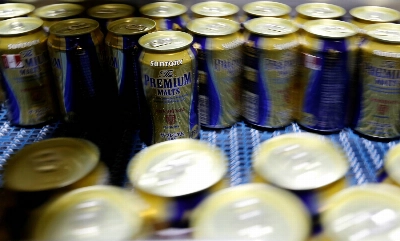The financial crisis that originated in the United States shows no sign of abating despite congressional passage last week of a $700 billion financial rescue package. There is a danger that it could further damage the real economy.
On Wall Street, the Dow Jones index finished at 9,955.50 Monday, ending below 10,000 for the first time since late October 2004, and finished at 9,447.11 Tuesday, ending below 9,500 for the first time in about five years. Panic selling also hit Asian and Europeans stock markets. In Japan, the Nikkei index finished at 9,203.32 Wednesday, marking the lowest level since June 30, 2003.
The U.S. bailout package, which allows the U.S. government to buy toxic mortgage-related securities and other devalued assets held by financial institutions, was expected to provide a way out of the crisis. But market players appear to have concluded it will not work instantly. The falling trend in stock prices could adversely affect the real economy as consumers tighten their purse strings and business enterprises reduce their capital investment.


















With your current subscription plan you can comment on stories. However, before writing your first comment, please create a display name in the Profile section of your subscriber account page.